Facials can be a wonderful way to rejuvenate your skin, enhance your complexion, and indulge in some self-care. But before you dive into this beauty treatment, it’s important to understand that not all facials are created equal, and your skin’s unique needs should guide your decision-making process. Choosing the wrong facial or neglecting important pre-care steps could lead to irritation, breakouts, or worse. To ensure you get the most out of your experience, here are 9 essential tips to consider before getting a facial.
1. Understand Your Skin Type
Before booking a facial, you must know your skin type. Not all facials suit every type of skin, and using the wrong products or treatments can cause more harm than good. Your skin may fall into one of these categories:
- Dry Skin: Often characterized by flakiness, rough patches, or a dull complexion.
- Oily Skin: Prone to shine, blackheads, and enlarged pores.
- Combination Skin: A mix of oily and dry areas, often with an oily T-zone.
- Sensitive Skin: Easily irritated, prone to redness, and can react to certain ingredients.
Visit a dermatologist or skin specialist to confirm your skin type if you’re unsure. Knowing this will allow you to choose a facial that is tailored to your skin’s specific needs, ensuring better results and avoiding potential irritation.
2. Research the Type of Facial
There are many types of facials available, from classic cleansing treatments to high-tech options like chemical peels, microdermabrasion, or laser facials. Each has a different purpose and effect. Some common types include:
- Basic Facials: Aimed at deep cleansing and improving overall skin texture.
- Anti-aging Facials: Include collagen-boosting treatments like LED therapy or serums.
- Hydrating Facials: Designed to moisturize and replenish dry, dehydrated skin.
- Acne Facials: Targeted treatments to combat breakouts and unclog pores.
Ensure that you select a facial that aligns with your goals—whether it’s to hydrate, combat acne, reduce fine lines, or exfoliate. If you’re unsure, ask your esthetician for guidance or advice.

3. Choose a Reputable Spa or Clinic
Your skin is delicate, and choosing the right spa or clinic is crucial for both safety and results. Look for a facility that has:
- Qualified, licensed estheticians: Professionals should have training and experience to assess your skin and perform facials properly.
- Good hygiene practices: Clean tools and sanitized equipment are non-negotiable to avoid infections.
- Positive reviews: Do some research online and read reviews from other customers. High ratings and positive feedback can give you confidence in the quality of service.
Choosing a reputable spa ensures that you’re not only getting effective results but that your skin is being treated with care in a clean, professional environment.
4. Be Aware of Allergies and Sensitivities
If you have any known allergies or sensitivities, especially to skincare ingredients like retinol, salicylic acid, or essential oils, let your esthetician know ahead of time. Some facials involve masks, peels, and exfoliants that can contain harsh chemicals or allergens that might trigger reactions.
Before starting any facial, it’s a good idea to request a patch test on a small area of skin to ensure you won’t have an adverse reaction. Being proactive about this can save you from discomfort and skin problems later.
5. Avoid Major Skin Treatments Beforehand
If you’ve recently had other skin treatments like laser therapy, microblading, or injectables like Botox, it’s best to wait a few weeks before getting a facial. These procedures can make your skin more sensitive and prone to irritation. For example, a deep exfoliating facial might be too harsh for skin that is already healing from laser treatments.
Consult with your dermatologist or esthetician to determine how long you should wait between treatments. The same rule applies to sun exposure; avoid sunburned skin as a facial can exacerbate the damage.
6. Stay Hydrated and Avoid Heavy Makeup
Before your facial, try to stay hydrated by drinking plenty of water. Well-hydrated skin responds better to treatments, allowing products to penetrate more effectively. In contrast, dehydrated skin may not show the same glowing results.
Additionally, try to skip heavy makeup on the day of your facial. While your esthetician will clean your skin, heavy layers of foundation or waterproof makeup can make the cleansing process harder, especially if they’re not completely removed before starting the treatment. Clean, bare skin makes for an easier, more effective facial.
7. Discuss Any Skin Conditions
If you have ongoing skin conditions such as eczema, rosacea, psoriasis, or severe acne, it’s important to discuss these with your esthetician in advance. Some facials can be too harsh and can worsen certain skin conditions. On the other hand, there are facials designed to help manage these issues, such as calming facials for rosacea or acne-targeted treatments that can reduce breakouts.
A knowledgeable esthetician will adjust the treatment plan to accommodate your skin’s needs, using gentler products and techniques to avoid flare-ups or irritation.
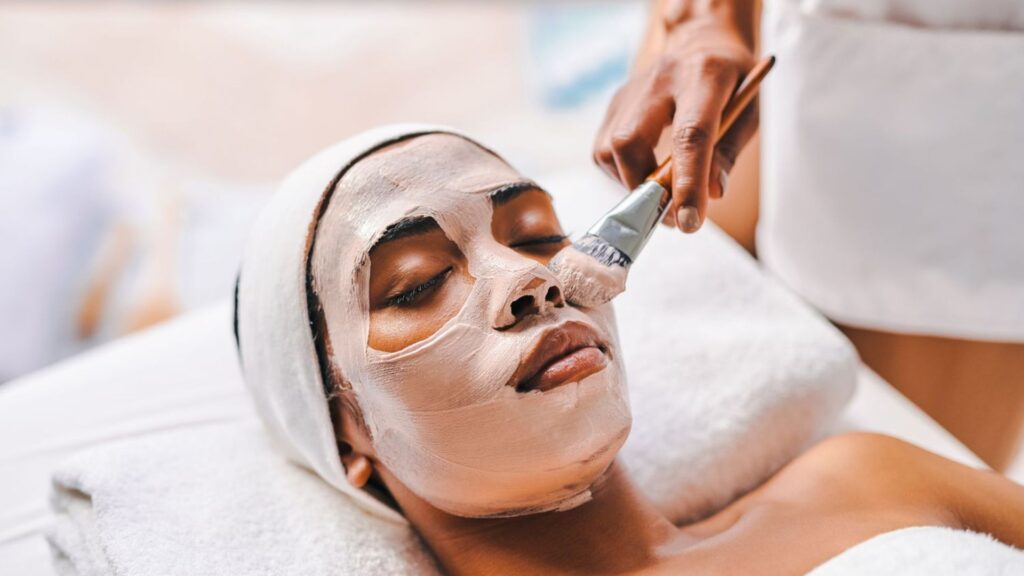
8. Avoid DIY Facials at Home Right Beforehand
If you’re tempted to exfoliate or use a mask at home before your facial, resist the urge! Over-exfoliation or the use of potent active ingredients like AHAs, BHAs, or retinoids at home can make your skin more sensitive and prone to irritation.
Your skin will already go through a thorough cleansing and exfoliation process during the facial, so doubling up on these treatments can do more harm than good. Let your esthetician handle the heavy lifting and stick to a gentle cleansing routine in the days leading up to your appointment.
9. Know the Post-Facial Care Routine
Your skin will be more sensitive immediately after a facial, so knowing the correct post-care routine is just as important as the facial itself. Here are some general tips:
- Avoid direct sunlight and use a high-SPF sunscreen to protect your freshly treated skin from UV damage.
- Skip heavy makeup for 24 hours to let your skin breathe.
- Avoid strenuous exercise or saunas for a day, as sweat and heat can irritate your skin after a treatment.
- Hydrate and moisturize: Drink water and use a gentle moisturizer to keep your skin plump and hydrated.
Listen to your esthetician’s aftercare recommendations to maximize the benefits of your facial and ensure your skin stays healthy and glowing.
Conclusion
A facial can be an amazing way to care for your skin and unwind, but it’s important to do your homework before booking one. Understanding your skin type, choosing the right kind of facial, and going to a reputable spa are essential steps in ensuring you get the best results. By following these 9 important tips, you can avoid common pitfalls and make the most of your facial experience, leaving your skin refreshed, radiant, and healthy.
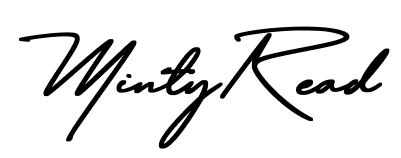

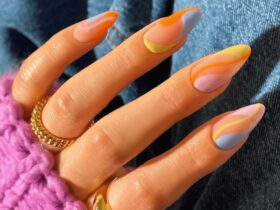









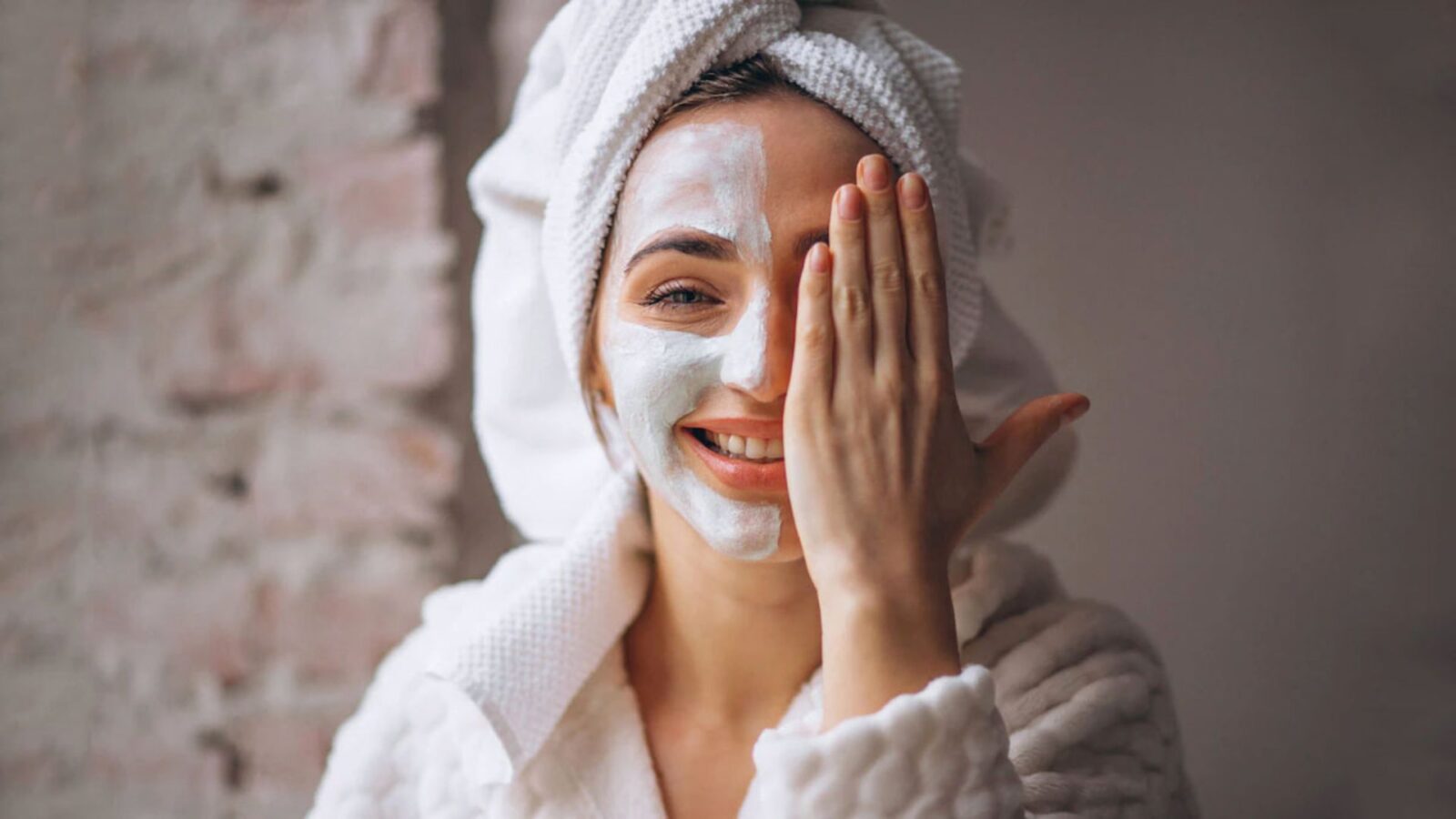


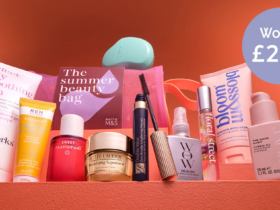


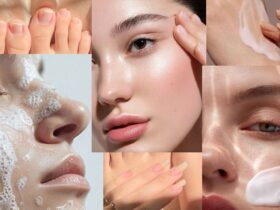
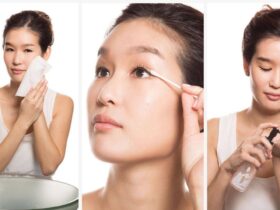

Leave a Reply